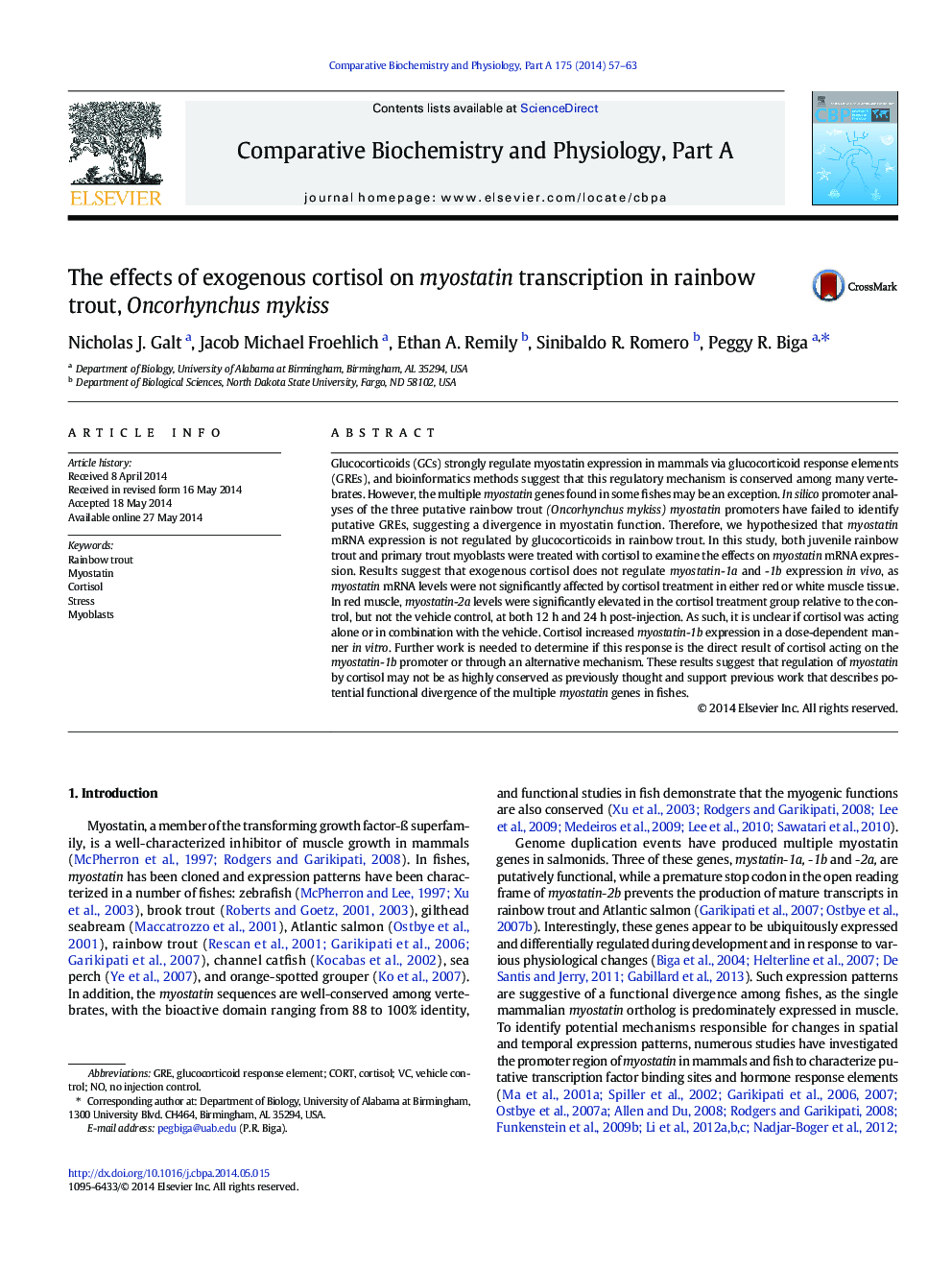| Article ID | Journal | Published Year | Pages | File Type |
|---|---|---|---|---|
| 8318612 | Comparative Biochemistry and Physiology Part A: Molecular & Integrative Physiology | 2014 | 7 Pages |
Abstract
Glucocorticoids (GCs) strongly regulate myostatin expression in mammals via glucocorticoid response elements (GREs), and bioinformatics methods suggest that this regulatory mechanism is conserved among many vertebrates. However, the multiple myostatin genes found in some fishes may be an exception. In silico promoter analyses of the three putative rainbow trout (Oncorhynchus mykiss) myostatin promoters have failed to identify putative GREs, suggesting a divergence in myostatin function. Therefore, we hypothesized that myostatin mRNA expression is not regulated by glucocorticoids in rainbow trout. In this study, both juvenile rainbow trout and primary trout myoblasts were treated with cortisol to examine the effects on myostatin mRNA expression. Results suggest that exogenous cortisol does not regulate myostatin-1a and -1b expression in vivo, as myostatin mRNA levels were not significantly affected by cortisol treatment in either red or white muscle tissue. In red muscle, myostatin-2a levels were significantly elevated in the cortisol treatment group relative to the control, but not the vehicle control, at both 12Â h and 24Â h post-injection. As such, it is unclear if cortisol was acting alone or in combination with the vehicle. Cortisol increased myostatin-1b expression in a dose-dependent manner in vitro. Further work is needed to determine if this response is the direct result of cortisol acting on the myostatin-1b promoter or through an alternative mechanism. These results suggest that regulation of myostatin by cortisol may not be as highly conserved as previously thought and support previous work that describes potential functional divergence of the multiple myostatin genes in fishes.
Keywords
Related Topics
Life Sciences
Biochemistry, Genetics and Molecular Biology
Biochemistry
Authors
Nicholas J. Galt, Jacob Michael Froehlich, Ethan A. Remily, Sinibaldo R. Romero, Peggy R. Biga,
